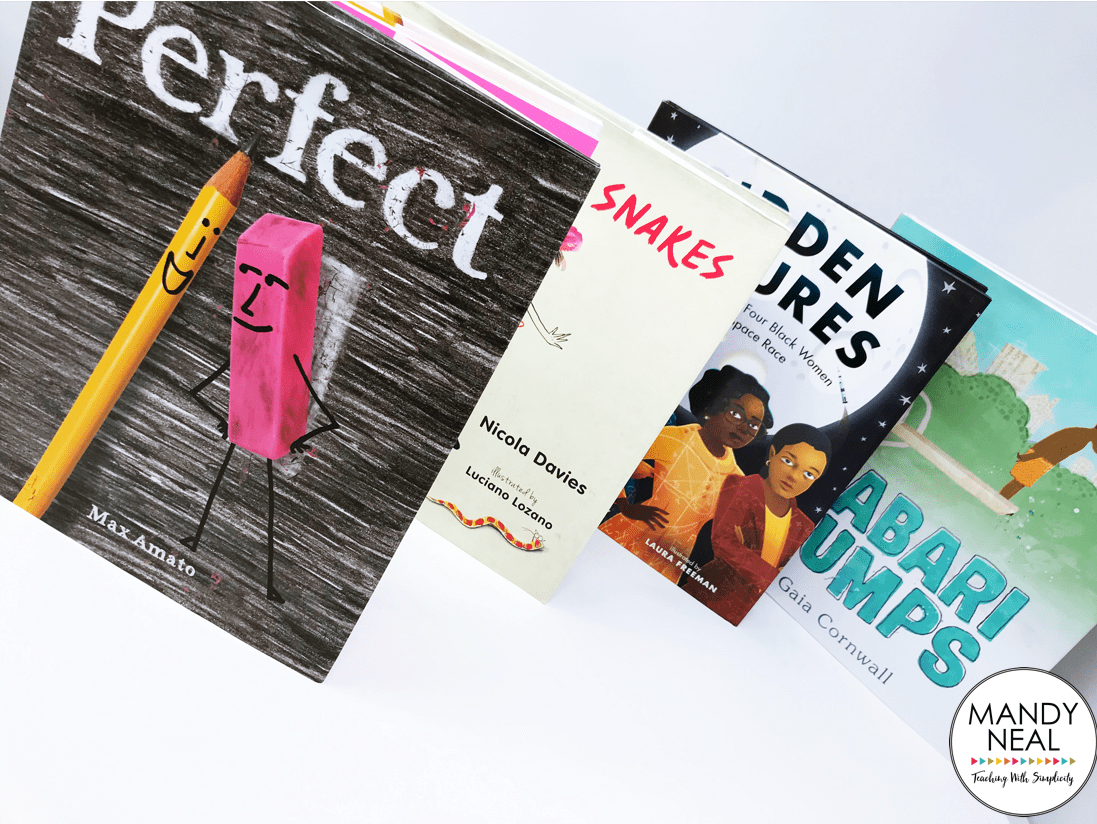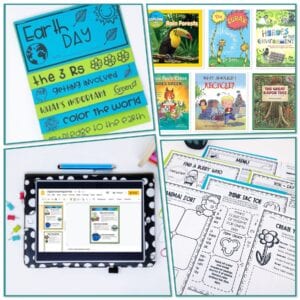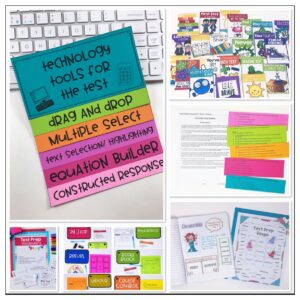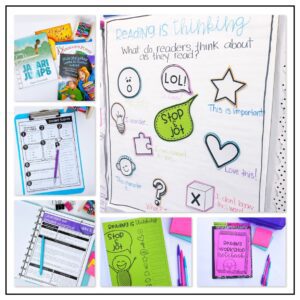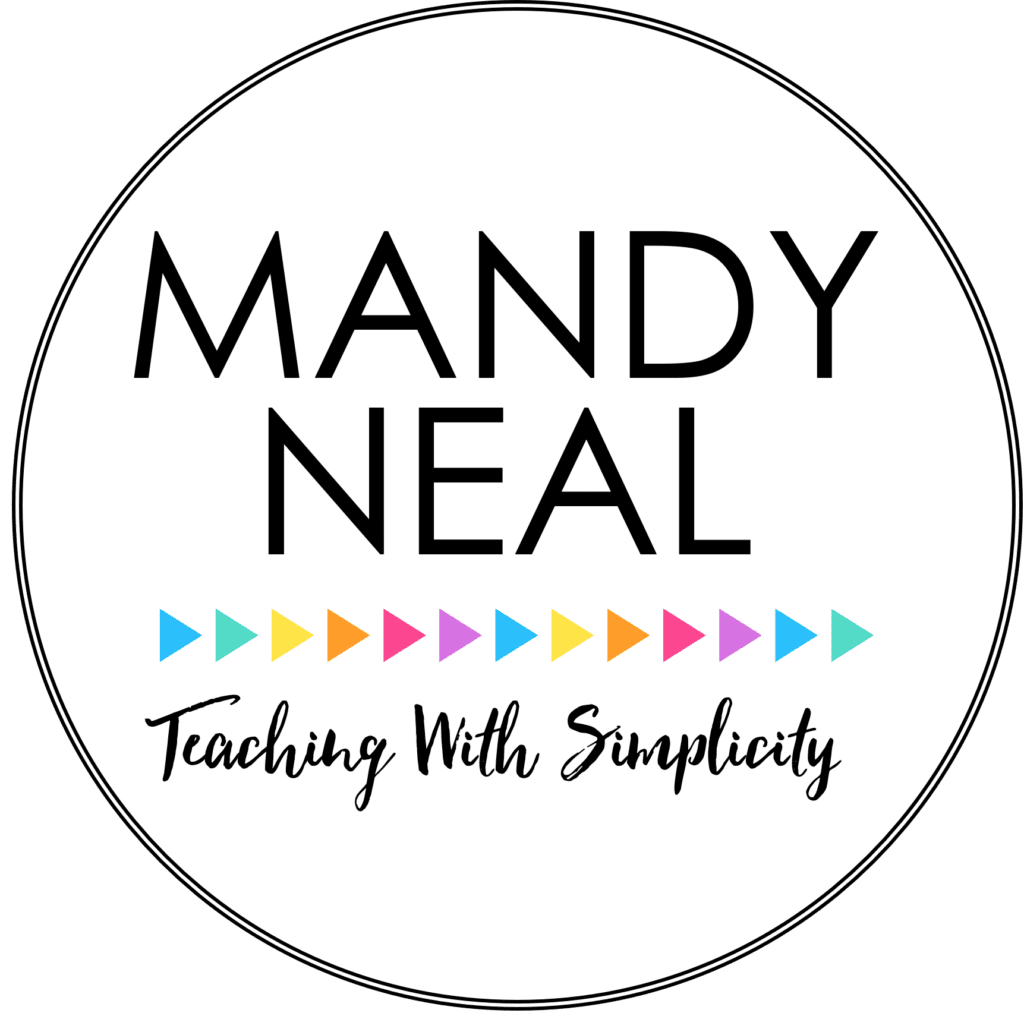One of my fondest memories as a fourth-grader was my teacher, Mrs. Meyers, reading The Mouse and the Motorcycle by Beverly Cleary. I remember her reading the book to us as she sat on her stool in front of the class. She wore glasses, and I recall how she would push them up with the top of her index finger opposite the hand that was holding the book. How is it that {insert many years later} this memory still sticks to me. It’s like I can place myself right back where I was in fourth grade. She introduced me to Beverly Cleary, and from that point on, she was my favorite author during my elementary years. I collected, and still have, all the Beverly Cleary books I had then! Yep, I’m nostalgic and sentimental. #SorryNotSorry
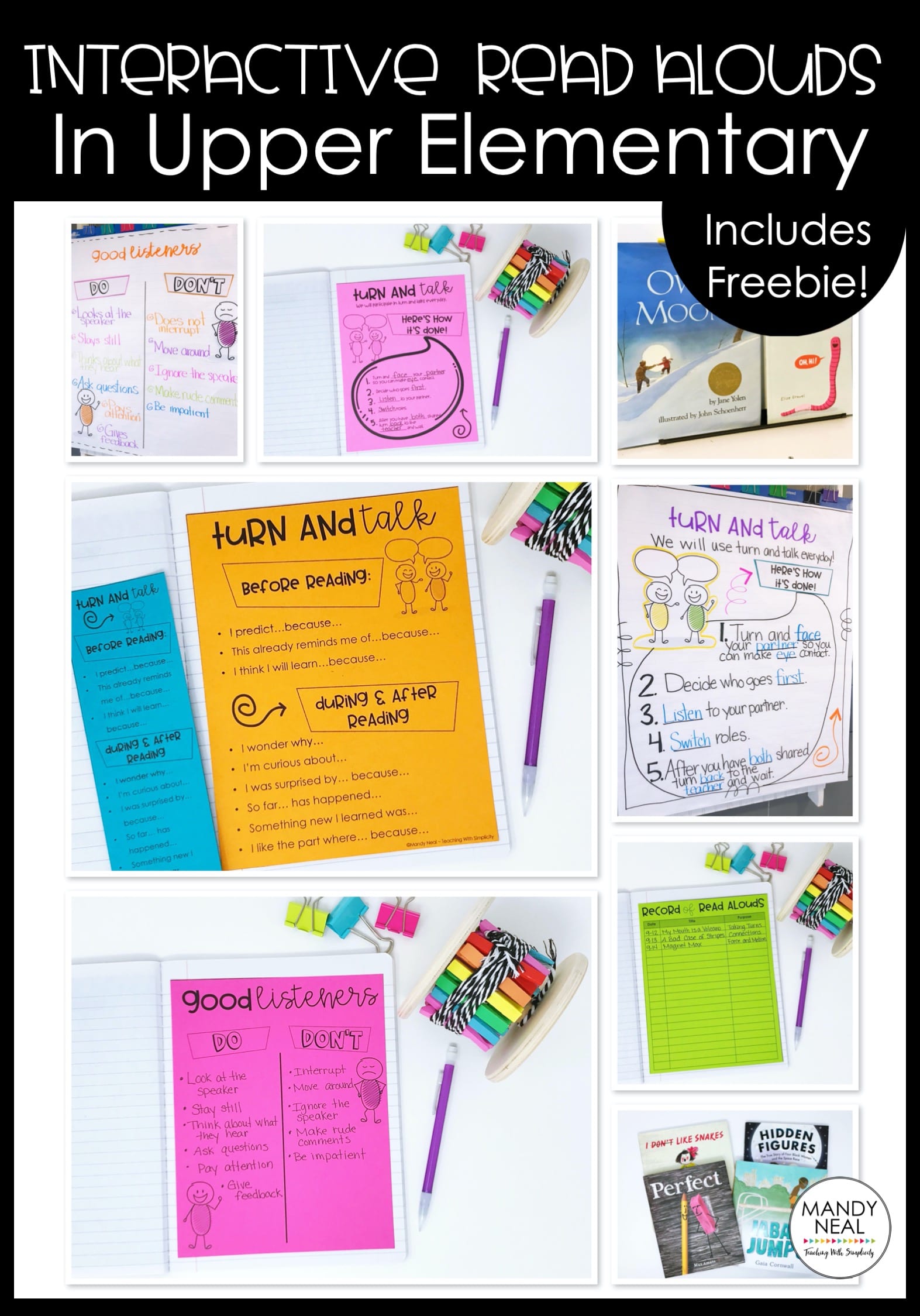 I am living proof that read alouds are powerful! Mrs. Meyers instilled the love of reading in me, and I have her to thank for it! I will say that read alouds have come a long way from what they were years ago, and I think that they are more powerful now than ever!
When most people think of reading aloud to students, they feel that they are only appropriate for the lower elementary, but that is not accurate. According to the U.S. Department of Education, “The single most important activity for building the knowledge required for eventual success in reading is reading aloud to children…. Reading aloud is a practice that should continue throughout the grades.”
I am living proof that read alouds are powerful! Mrs. Meyers instilled the love of reading in me, and I have her to thank for it! I will say that read alouds have come a long way from what they were years ago, and I think that they are more powerful now than ever!
When most people think of reading aloud to students, they feel that they are only appropriate for the lower elementary, but that is not accurate. According to the U.S. Department of Education, “The single most important activity for building the knowledge required for eventual success in reading is reading aloud to children…. Reading aloud is a practice that should continue throughout the grades.”

 After students know what “Turn and Talk” is, we practice, but before we practice, we discuss what good listeners do and what they do not do and create an anchor chart to refer to.
After students know what “Turn and Talk” is, we practice, but before we practice, we discuss what good listeners do and what they do not do and create an anchor chart to refer to.

 Once that’s done, we practice. My first few read alouds are just for practicing on “Turn and Talk” and being good listeners.
Next, I introduce the “Turn and Talk” bookmark, or I may use the notebook page for students to include in their reading notebook. The bookmark contains sentence stems. These are especially beneficial when first beginning. It gives students a crutch for how they should/could begin their talk with their partner.
Once that’s done, we practice. My first few read alouds are just for practicing on “Turn and Talk” and being good listeners.
Next, I introduce the “Turn and Talk” bookmark, or I may use the notebook page for students to include in their reading notebook. The bookmark contains sentence stems. These are especially beneficial when first beginning. It gives students a crutch for how they should/could begin their talk with their partner.



 I am living proof that read alouds are powerful! Mrs. Meyers instilled the love of reading in me, and I have her to thank for it! I will say that read alouds have come a long way from what they were years ago, and I think that they are more powerful now than ever!
When most people think of reading aloud to students, they feel that they are only appropriate for the lower elementary, but that is not accurate. According to the U.S. Department of Education, “The single most important activity for building the knowledge required for eventual success in reading is reading aloud to children…. Reading aloud is a practice that should continue throughout the grades.”
I am living proof that read alouds are powerful! Mrs. Meyers instilled the love of reading in me, and I have her to thank for it! I will say that read alouds have come a long way from what they were years ago, and I think that they are more powerful now than ever!
When most people think of reading aloud to students, they feel that they are only appropriate for the lower elementary, but that is not accurate. According to the U.S. Department of Education, “The single most important activity for building the knowledge required for eventual success in reading is reading aloud to children…. Reading aloud is a practice that should continue throughout the grades.”
Why Interactive Read Alouds
- Improves comprehension skills
- Models fluency
- Boost vocabulary
- Provides background knowledge
- Promotes oral language and listening skills
- Develops critical thinking skills
- Motivates students to want to read
- Creates a classroom community
Making Read Alouds Interactive
Interactive read alouds happen in my classroom every single day, and they are not limited to just the reading block, as some may think. My read alouds occur not only in reading, but writing, math, science, and social studies. It’s a great way to build background knowledge before diving into a new topic. I shared the fourth-grade version of me and my experience with listening to my teacher read to us. I like to read to keep a chapter book around to read to students when I have a few extra minutes here and there, but interactive read alouds are purposeful and, of course, interactive. Every one of my interactive read alouds, no matter the age, no matter the subject, my students gather on a carpet in front of me. Also, I’m sitting in a chair, not standing up. I want this to be an intimate time for us. They love this and look forward to it. This biggest component of the interactive read aloud, beyond the skill or topic that we are focusing on, is the interaction that goes on between students. Interaction keeps them engaged, focused, and the more they talk about what they are learning, the more likely their learning will stick. The strategy that we use is “Turn and Talk.” I create an anchor chart and give students one of their own to fill out with me. Before I fill in the blanks, we discuss what might go in each one. With guidance from me, we fill in the chart together. I do this at the beginning of the year when launching the reading workshop, but if you are just getting started with interactive read alouds, start now!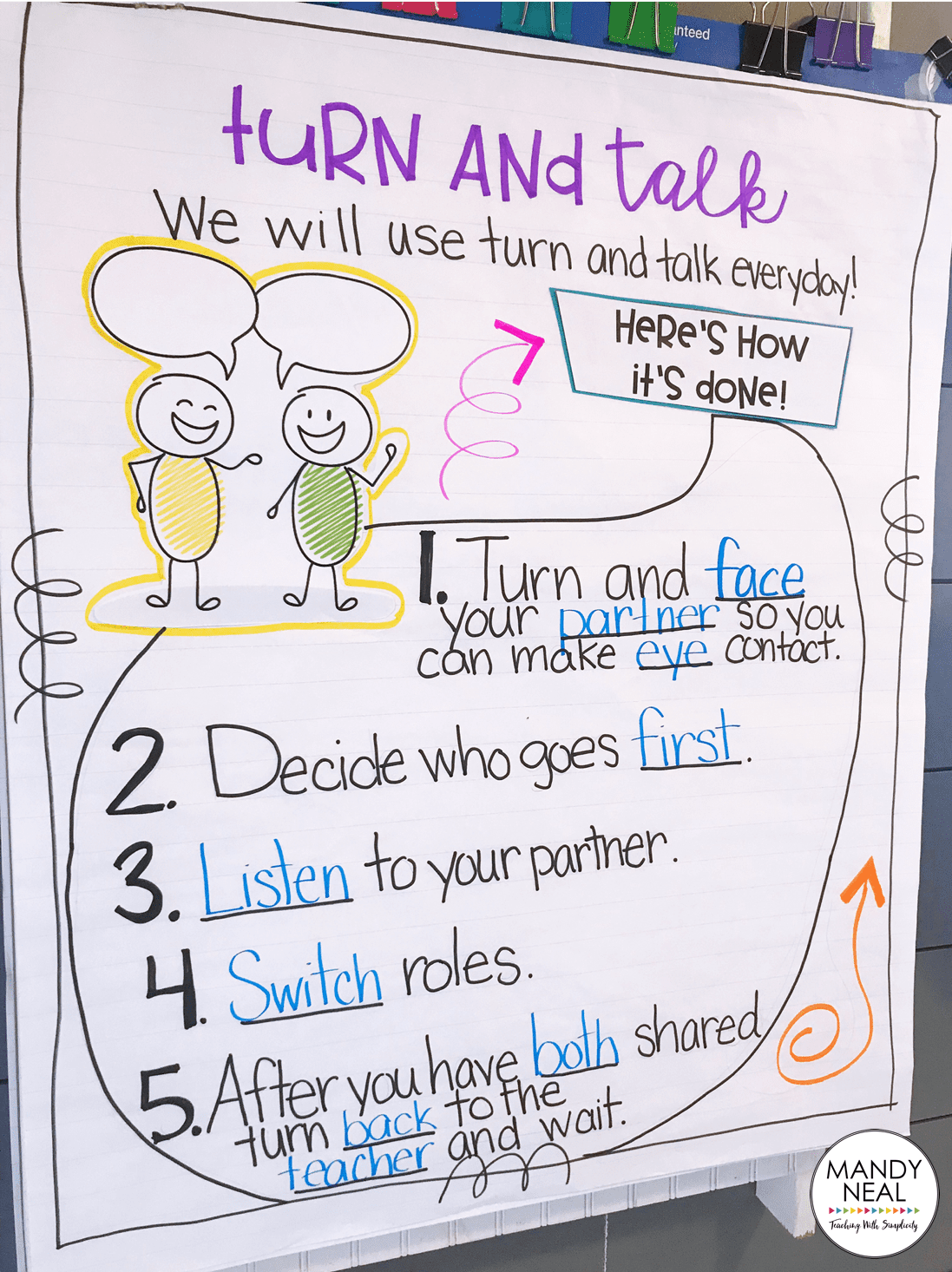
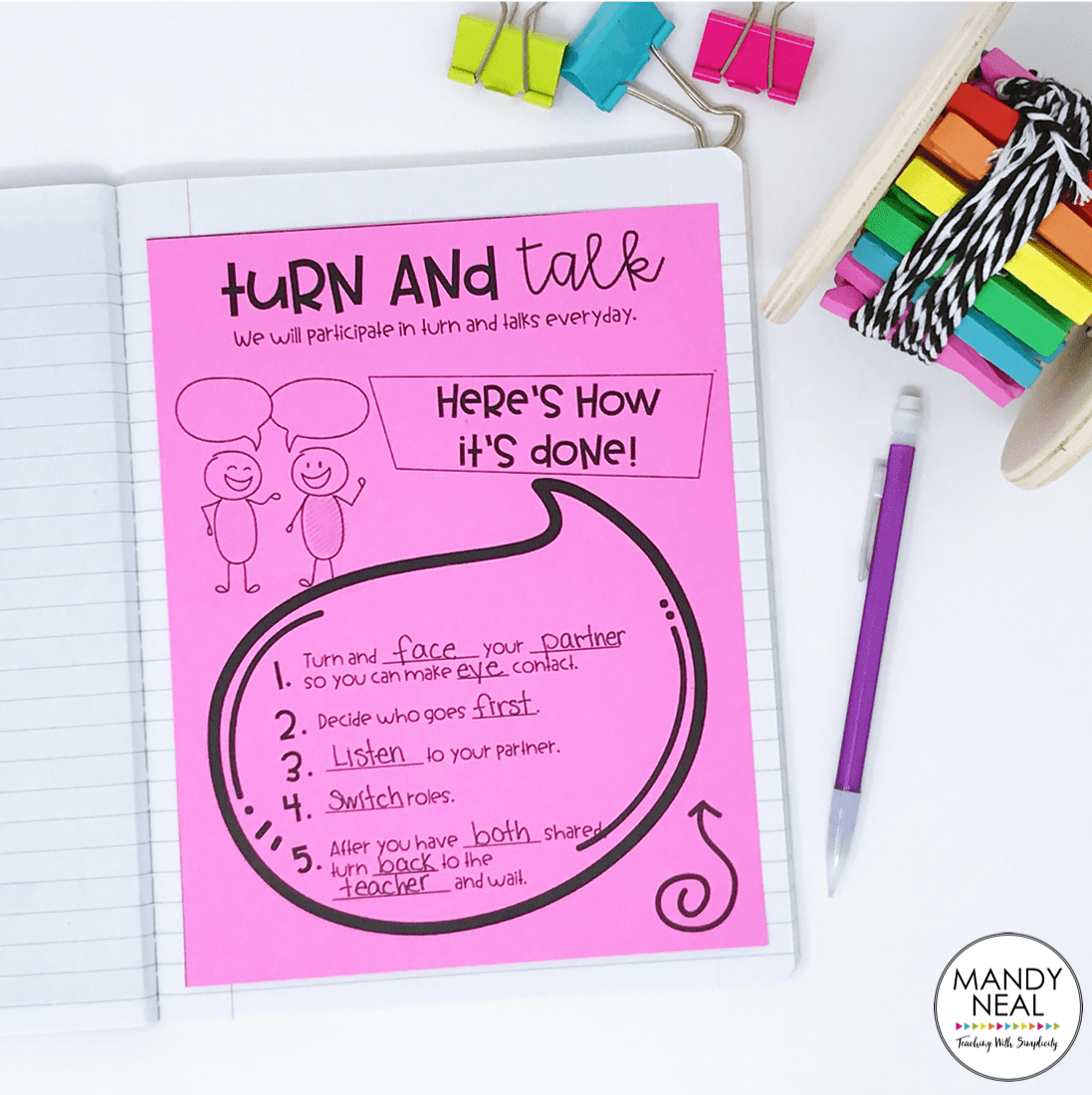 After students know what “Turn and Talk” is, we practice, but before we practice, we discuss what good listeners do and what they do not do and create an anchor chart to refer to.
After students know what “Turn and Talk” is, we practice, but before we practice, we discuss what good listeners do and what they do not do and create an anchor chart to refer to.
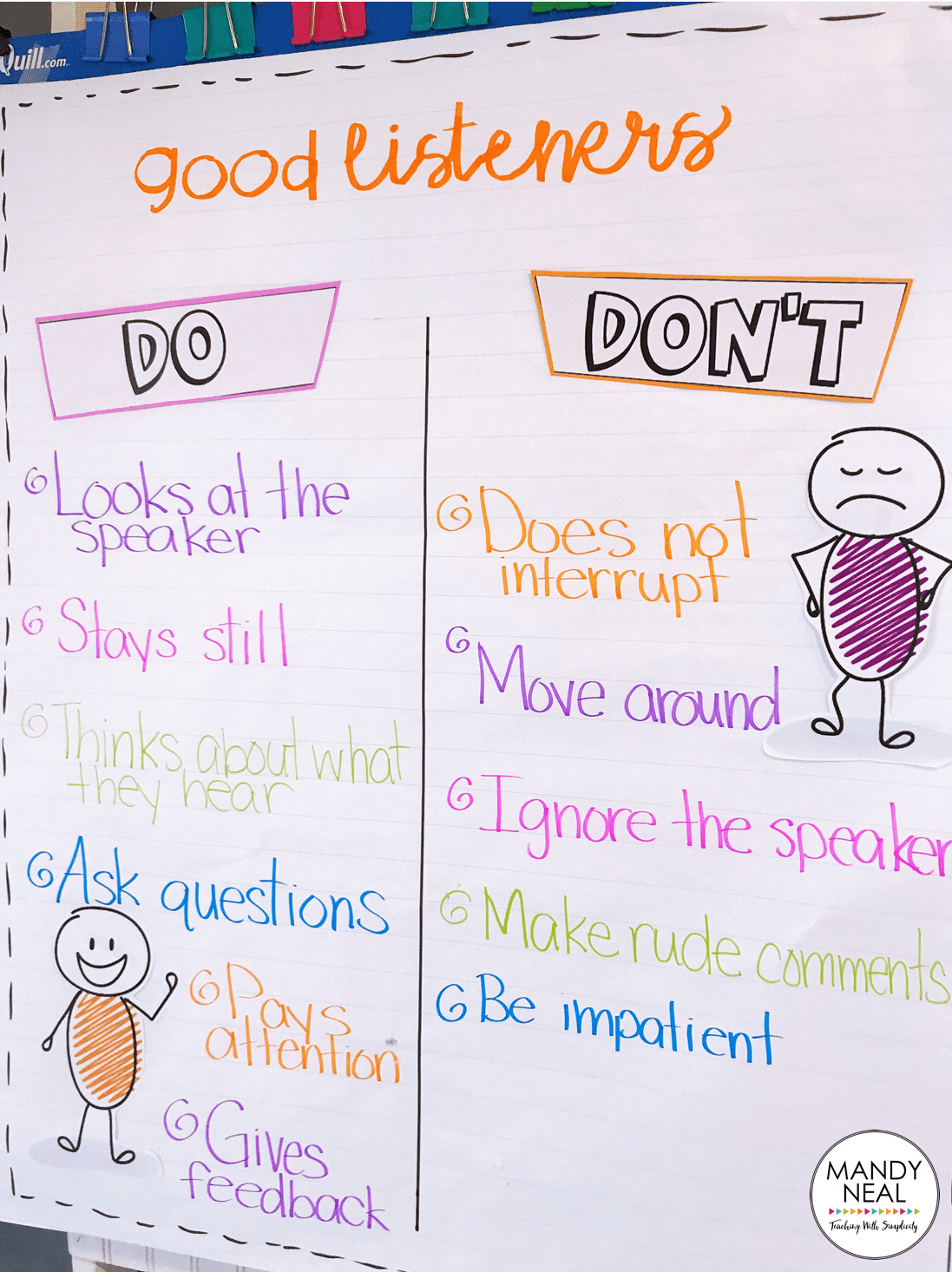
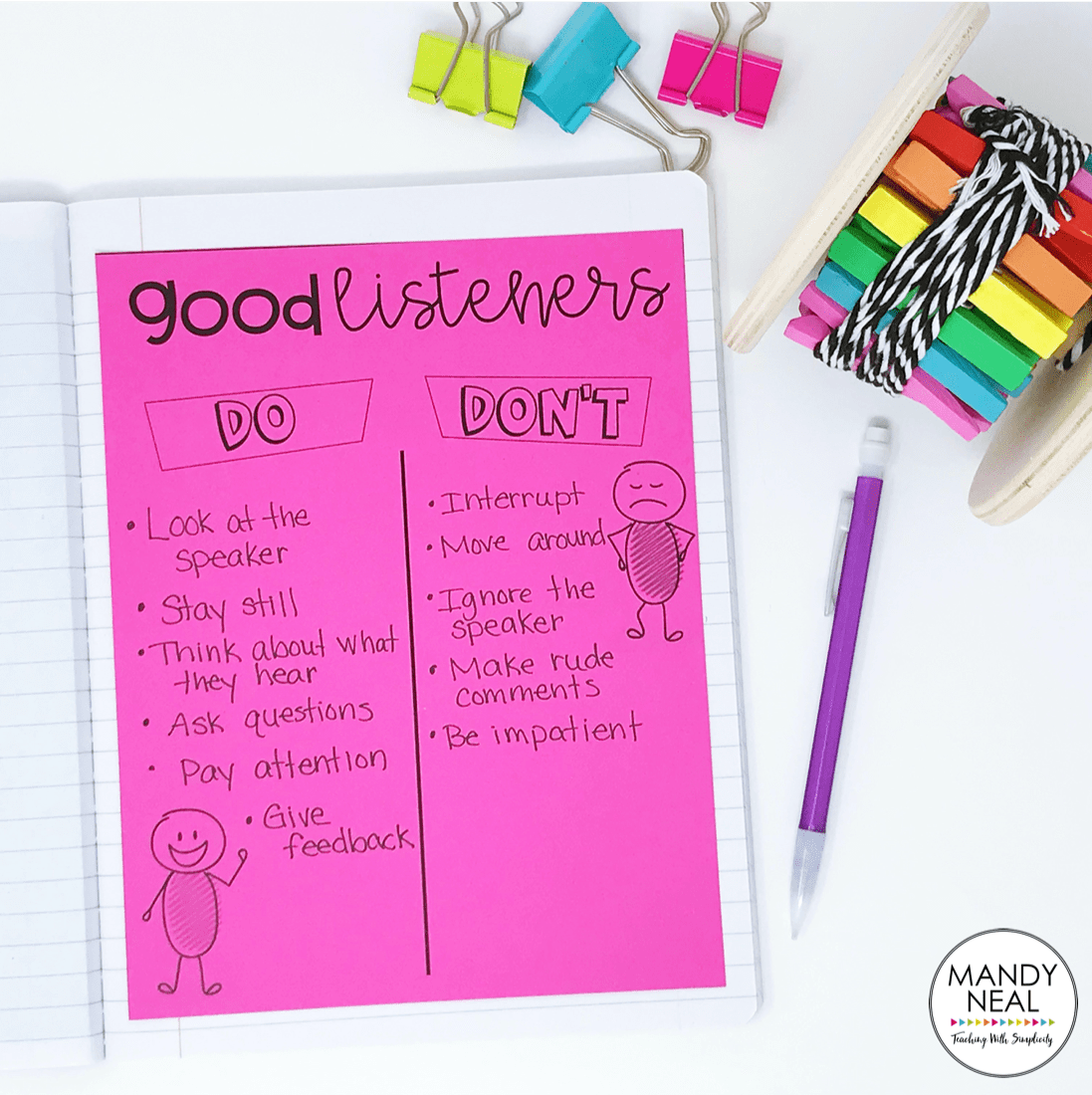 Once that’s done, we practice. My first few read alouds are just for practicing on “Turn and Talk” and being good listeners.
Next, I introduce the “Turn and Talk” bookmark, or I may use the notebook page for students to include in their reading notebook. The bookmark contains sentence stems. These are especially beneficial when first beginning. It gives students a crutch for how they should/could begin their talk with their partner.
Once that’s done, we practice. My first few read alouds are just for practicing on “Turn and Talk” and being good listeners.
Next, I introduce the “Turn and Talk” bookmark, or I may use the notebook page for students to include in their reading notebook. The bookmark contains sentence stems. These are especially beneficial when first beginning. It gives students a crutch for how they should/could begin their talk with their partner.
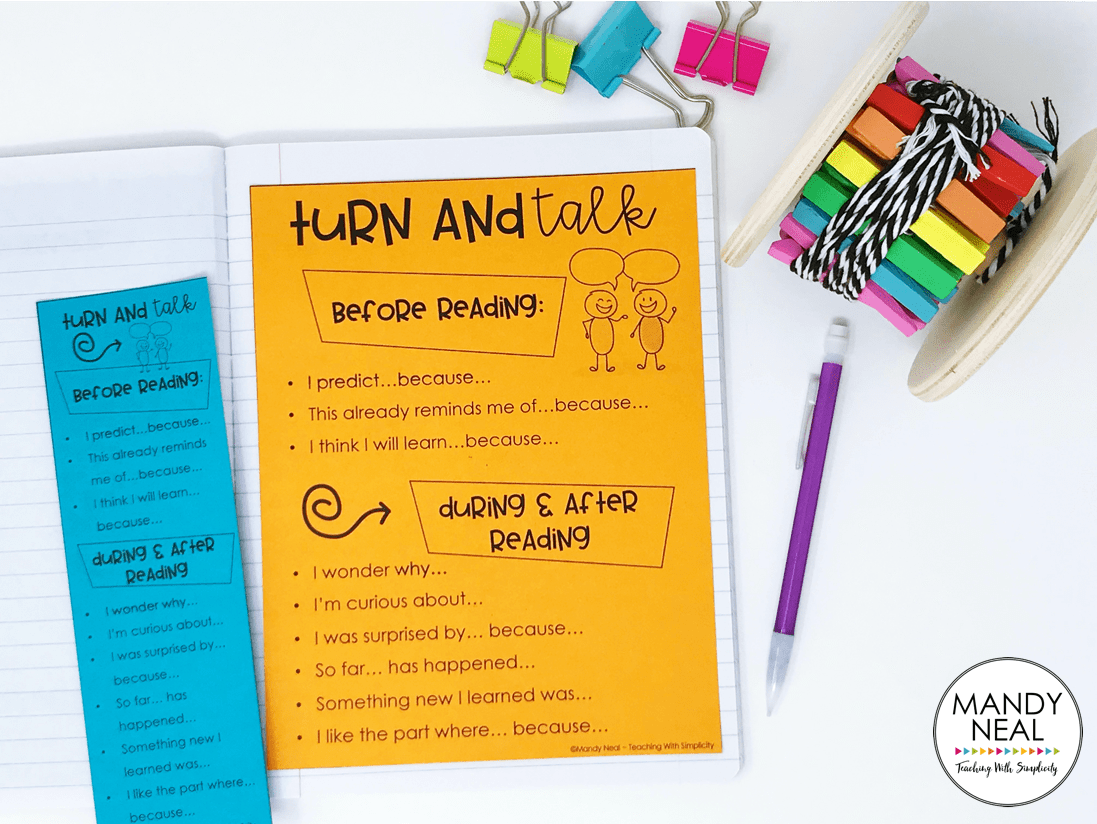
Tips
Before Reading
- Preview the book, share the title and author
- Encourage making connections
- Ask students what they want to know
During & After Reading
- Read with expression
- Share the pictures
- Model reading strategies
- Stop and ask questions
Keep a Record
This is so much fun to look back throughout the year. I’ve created a book display, similar to these. These displays are fantastic but will take some prepping and diligence in keeping up with. I’ve also created a chart that we simply add to as we go. This was a lot more manageable for me. I also provided my students with a record of read alouds that they could keep track of on their own.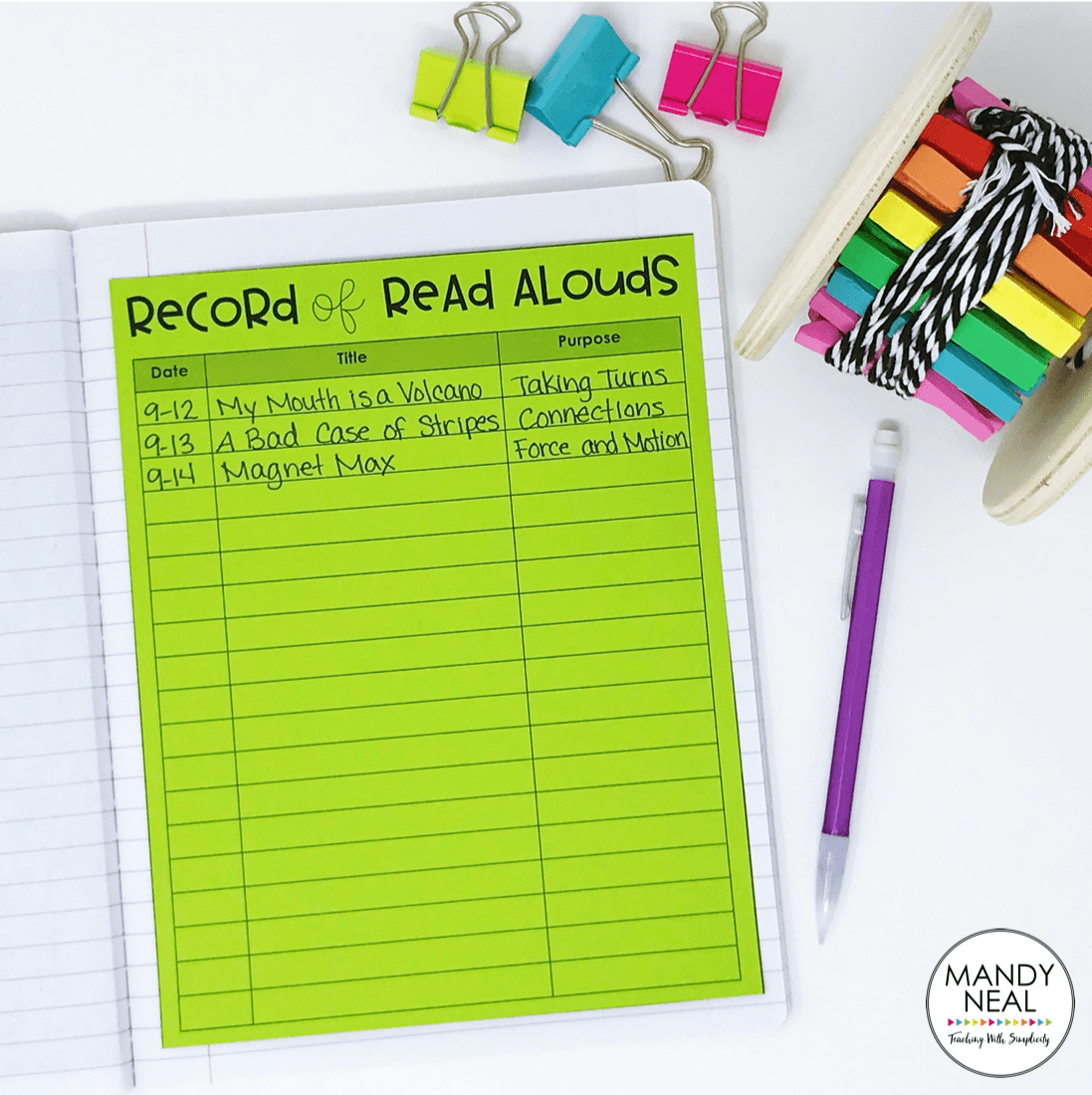
Don’t Put it Away
I always keep the books I’ve read aloud out and accessible to students. It doesn’t matter that they just heard a story or learned some interesting facts; there are always students that want to read the book on their own. I place them on the tray that holds my dry erase markers. It’s nothing fancy, but serves the purpose!